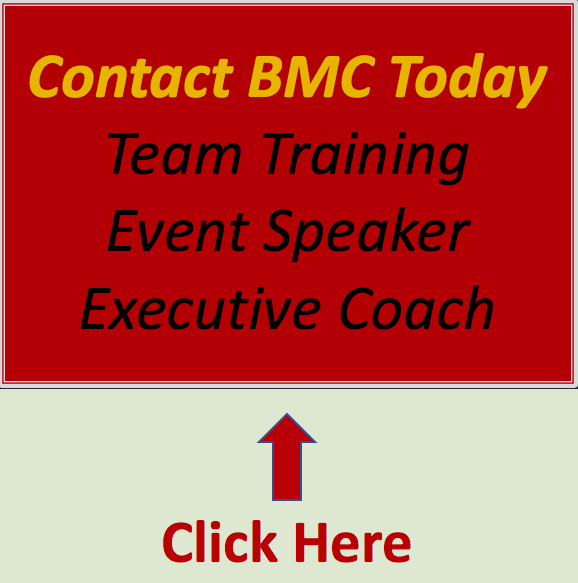Motivated Reasoning: Why We Believe What We Believe.
/Our wishes, hopes, fears and motivations make us
more likely to accept something as true if it supports what we want to believe.
What you and I believe has a lot to do with what you and I want to believe. And no surprise… what we want to believe has a big impact on the decisions we make at home and at work.
Research shows you and I trust facts - even wild unbelievable facts - when those facts support what we already believe or what we want to believe (Journal of Personality and Social Psychology, 1992); the source of the facts has little influence over our trust. For example, if you enjoy coffee you will likely place low legitimacy on studies that say caffeine is harmful, meanwhile you may enthusiastically accept, reference and even share studies that suggest caffeine is beneficial. This is a perfect example how our thoughts create our reality.
The challenge is that you and I often seem to have no idea our subconscious is working overtime to support its own agenda. This cognitive prejudice is called motivated reasoning. As stated by Dr. Peter Ditto, PhD, a social psychologist at the University of California, Irvine, who studies how motivation, emotion and intuition influence judgment, "People are capable of being thoughtful and rational, but our wishes, hopes, fears and motivations often tip the scales to make us more likely to accept something as true if it supports what we want to believe."
And, if our subconscious wasn’t enough of a challenge when it comes to motivated reasoning, the algorithms connected to our social media accounts are designed to push information our way based on what we’ve previously looked at, read and liked. These algorithms narrow our focus even further and shield us from new and interesting points-of-view while creating an echo chamber of the ideas and beliefs we already have.
Here is an at-home example: Imagine it is the weekend. You and I are standing outside side by side as it begins to rain. With each of us looking at the same weather report on our smartphones:
You believe it will rain enough so that you don’t have to water the garden and instead can go inside an relax with a favourite book - guilt free.
I believe it will not rain enough because I want to see first-hand how well the new in-ground watering system works that I proudly installed the week earlier .
Considering Motivate Reasoning When Influencing Others
When you and I think about influencing staff, customers or even the leaders we report into, their current beliefs are important to consider because those beliefs will have a great impact on how we should approach the discussion. Because of motivated reasoning it almost always takes more information to make others believe something they don't want to believe or that goes against their current beliefs. Therefore, how much time and work it will take for you and I to succeed will depend on how hard their conscious and subconscious are working to protect their existing beliefs.
And, if motivated reasoning isn’t enough, everybody’s behaviours and decisions are also being impacted by confirmation biases – which for some may sound like a perfect storm and enough to make us want to stay locked in our offices all day.
NOTE: Confirmation bias is slightly different from motivated reasoning. Confirmation bias is when people notice information that agrees with their existing needs and beliefs and points of view while decidedly ignoring (without concern for validity), information, opinions and studies that are contradictory. And again, motivated reasoning is our tendency to easily and wantingly accept information, opinions or studies that agree with our needs, beliefs and values.
Helping People Move Forward
If we want to change a persons strongly held belief we will likely have to overcome motivated reasoning (and confirmation bias). To do this there are two things we will have to do to shift how our thoughts create our reality:
Earn Their Trust… Listen To Them
One of the best ways you can build trust is to make them feel important; one of the best ways to make people feel important is to listen to them.
Do your best to avoid debating or arguing with them. Instead, learn what is important to them and perhaps more importantly… why it is important to them. Do this by asking open ended questions like, “Tell me more,” and “How does that make you feel?” Listen carefully. You can’t help them change if you don’t understand where they are coming from and why they are there. When they trust you and feel they are an important, respected part of a team they will begin to be ready to begin listening to your beliefs and be open to considering a different point of view.Overcome Their Social Bonds… Their Tribe
If a person has strongly held beliefs it usually means they have a social group (a tribe), of family, friends and/or coworkers who share and reinforce their beliefs; a group of people that make them feel valued and ‘at home’. If you and I are going to ask them to change, a good part of their resistance will be loyalty to their social group and their feelings of security within that group. For you and I to succeed it will be important to ensure they feel there is another social group to join… and hopefully they will see this new social group as highly desirable and important to their success.
Thank you for reading my article about motivated reasoning and how our wishes, hopes, fears and motivations impact what we do and do not want to believe.
Bruce
About Bruce and Bruce Mayhew Consulting.
Corporate trainer Bruce Mayhew (of BMC) specialize in customized Leadership, Communication and other soft skills training solutions in Toronto and across Canada.
BMC helps your greatest assets think productive and be productive.
Bruce is an experienced motivational speaker in Toronto and has inspired audiences across Canada and within the USA and the UK. Bruce works hard to always make sure your training event, conference, retreat, or annual general meeting is a success.



